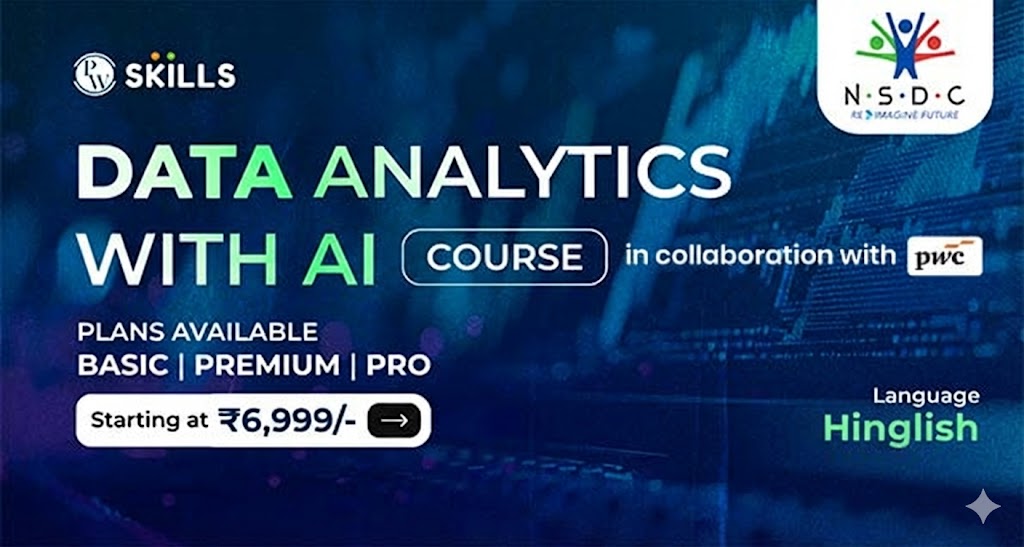It’s no longer possible to move forward with just assumptions in this fast-paced world of digitals. With data everywhere to measure and read, businesses are facing bigger challenges. Their success or failure scaled down to the wisdom they manage to craft out of their data. This is data intelligence, in other words. It takes raw information and converts it into knowledge that users can work with in order to achieve smarter business decisions, more tactical strategic planning, and an overall superior user experience.
Data Intelligence: In Simple Words
Now we know from the basics: what does data intelligence mean to those who understand and apply this data to something exciting? Consider you are planning a road trip. You have maps, weather updates, fuel prices, and reviews on tourist spots. What if someone combined all those details for you and advised on the best route, cheapest gas stations, and the prettiest scenic viewpoints according to your preferences? That’s what businesses use data intelligence for either to collect, examine, and interpret data to craft better decisions.
Data intelligence is connecting different dots and predicting possible patterns and trends, with an attempt to find out why an outcome can come out that way and guarantee improvement or deployment in the operation of customer service in order to remain a competitive step forward.
In Real Life: The Vigour of Data Intelligence
Data intelligence is already shining in existence among various fields such as healthcare, retail, finance, and education alike. Retailers use data intelligence to study customer buying behavior and predict future demand. Hospitals endowed with data intelligence are able to quickly diagnose (up or down) from the combined patient record and medical research.
Whenever you get a movie recommendation, a price drop warning, or a bank transaction fraud alert, data intelligence is at work. It steps behind every businesswise smart decision today.
How Does the Data Intelligence Platform Work?
Data intelligence technology stood as an e-to-Magic world engine. A mesh of data indeed is assembled from distinct sources: social media, websites, CRMs, spreadsheets, and even the datasets coming from the IoT devices. Datapoint is then addressed with a data node processed (in case of any errors or double entries) and cleaned; the trend is studied through it, and eventually visual reports and insights appear in front of the user.
Here are some of the best data intelligence solutions:
- Real-time dashboards
- Predictive analytics
- Data lineage tracking
- Automated reporting
- AI-driven insights
All these help the decision-makers to extract the story hidden within the data rather than mere numbers.
Why Data Intelligence Matters More Than Ever
We are living in the era where every click, swipe, or voice command is leaving a digital print. Without data intelligence, all the collected data is useless noise by itself. With data intelligence, these companies are able to:
- Drive down operational costs
- Foresee customer needs
- Aid in launching of quality products
- Prevent risks before they become predicaments
The earlier firms pick data intelligence, the more competitive and innovation-oriented they will become. It’s no longer a luxury for educators and students; the understanding of the concept of data intelligence becomes obligatory.
![]() Join Our Data Analytics Telegram Channel
Join Our Data Analytics Telegram Channel
![]() Join Our Data Analytics WhatsApp Channel
Join Our Data Analytics WhatsApp Channel
Crucial Data Intelligence Tools Every Student and Professional Should Know
The journey of data intelligence needs the right tools to operate. Tools exist for every level, from beginner to expert.
Here are some popular data intelligence tools:
- Tableau: Amazing for visual data analysis and dashboards.
- Power BI: Microsoft’s chosen tool for business insights.
- Qlik Sense: Prominent in self-service data analysis.
- Looker: Links with Google Cloud for advanced BI.
- Alteryx: Offers data exploration and predictive modeling.
All overlap and interact in different parts of the data intelligence process: data visualization, integration, cleanup, exploration, and many others.
Getting a Kick Start in Data Intelligence
Data intelligence could be a Pandora’s box for you if you are just starting to understand data. Nevertheless, let me assure you that all can be well. With the correct learning path and practice, anyone can master data intelligence. Begin with an understanding of Excel analytics, progress to Power BI or Tableau, and learn a little bit of SQL or Python to automate and delve further into data analysis.
Working professionals can start utilizing a data intelligence perspective in terms of performance metrics, processes, or customer services. Students also vary in their analytical careers, such as data analyst, BI developer, or data scientist.
You definitely shall need a solid course on your way to dive deep into data intelligence.
Future Data Intelligence: Smarter, Faster, Everywhere
The future of data intelligence is bright. We are at the brink of an era where real-time inputs will fuel instantaneous decision-making when feedback is drawn from every possible device on an ongoing basis. Data intelligence platforms with AI and machine learning would soon start nudging businesses towards suggestions for betterment, curing risks, and personalizing services as they come.
Know this: Education is now adapting; schools use data intelligence tools to monitor students’ behavior and suggest faster ways to learn. It is not about being good at numbers; now, it’s about being able to affix data.
Also Read:
- What Is a Data Warehouse? A Major Shift With Cloud Data Warehouse
- What is Data Lineage?: Best Tools, Simple Definition & Career Use Cases (2025 Insights)
- What Is Data Exchange? Complete Explanation For Beginners
- Data Exploration 101: The First Step to Smarter Analytics
Skill Up with PW Skills’ Data Analytics Course
Future-proof yourself in the world of data intelligence with the power-packed PW Skills Data Analytics Course. Learn to help turn complex data into smart decision-making using tools this industry practices and specs. Both students and professionals shall find this course the right step to gain real-world, on-the-ground skills.
Data intelligence is a class recording. Business intelligence is history-based analysis, while data intelligence pursues past, present, and predictive insights with AI and real-time data input to make smarter decisions. Not usually. Several drag-and-drop interfaces are easy to use on many data intelligence platforms. Learning the basic structures of SQL or Python is helpful for more complex analysis, but by no means necessary. Data intelligence empowers all sectors-from fashion to sports to hotels to education-to making informed and smart choices on how best to align with their customers. Data Intelligence FAQs
What's the difference between data intelligence and business intelligence?
Do I need to learn coding for data intelligence?
Do you think data intelligence will work in non-technical sectors?




